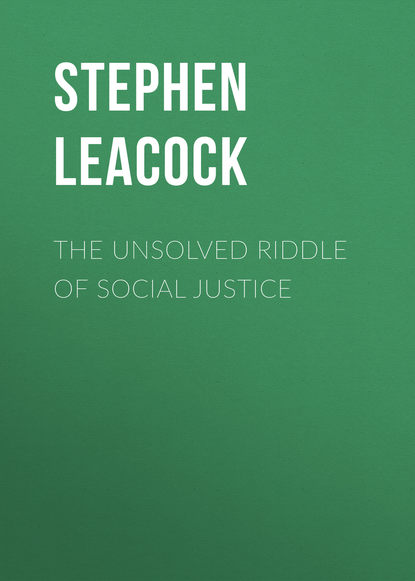По всем вопросам обращайтесь на: info@litportal.ru
(©) 2003-2024.
✖
The Unsolved Riddle of Social Justice
Автор
Год написания книги
2019
Настройки чтения
Размер шрифта
Высота строк
Поля
But when all is said about the horror of idleness the broad fact remains that the hours of work are too long. If we could in imagination disregard for a moment all question of how the hours of work are to be shortened and how production is to be maintained and ask only what would be the ideal number of the daily hours of compulsory work, for character's sake, few of us would put them at more than four or five. Many of us, as applied to ourselves, at least, would take a chance on character at two.
The shortening of the general hours of work, then, should be among the primary aims of social reform. There need be no fear that with shortened hours of labor the sum total of production would fall short of human needs. This, as has been shown from beginning to end of this essay, is out of the question. Human desires would eat up the result of ten times the work we now accomplish. Human needs would be satisfied with a fraction of it. But the real difficulty in the shortening of hours lies elsewhere. Here, as in the parallel case of the minimum wage, the danger is that the attempt to alter things too rapidly may dislocate the industrial machine. We ought to attempt such a shortening as will strain the machine to a breaking point, but never break it. This can be done, as with the minimum wage, partly by positive legislation and partly collective action. Not much can be done at once. But the process can be continuous. The short hours achieved with acclamation to-day will later be denounced as the long hours of to-morrow. The essential point to grasp, however, is that society at large has nothing to lose by the process. The shortened hours become a part of the framework of production. It adapts itself to it. Hitherto we have been caught in the running of our own machine: it is time that we altered the gearing of it.
The two cases selected,—the minimum wage and the legislative shortening of hours,—have been chosen merely as illustrations and are not exhaustive of the things that can be done in the field of possible and practical reform. It is plain enough that in many other directions the same principles may be applied. The rectification of the ownership of land so as to eliminate the haphazard gains of the speculator and the unearned increment of wealth created by the efforts of others, is an obvious case in point. The "single taxer" sees in this a cure-all for the ills of society. But his vision is distorted. The private ownership of land is one of the greatest incentives to human effort that the world has ever known. It would be folly to abolish it, even if we could. But here as elsewhere we can seek to re-define and regulate the conditions of ownership so as to bring them more into keeping with a common sense view of social justice.
But the inordinate and fortuitous gains from land are really only one example from a general class. The war discovered the "profiteer." The law-makers of the world are busy now with smoking him out from his lair. But he was there all the time. Inordinate and fortuitous gain, resting on such things as monopoly, or trickery, or the mere hazards of abundance and scarcity, complying with the letter of the law but violating its spirit, are fit objects for appropriate taxation. The ways and means are difficult, but the social principle involved is clear.
We may thus form some sort of vision of the social future into which we are passing. The details are indistinct. But the outline at least in which it is framed is clear enough. The safety of the future lies in a progressive movement of social control alleviating the misery which it cannot obliterate and based upon the broad general principle of equality of opportunity. The chief immediate direction of social effort should be towards the attempt to give to every human being in childhood adequate food, clothing, education and an opportunity in life. This will prove to be the beginning of many things.
THE END
Другие электронные книги автора Стивен Батлер Ликок
Другие аудиокниги автора Стивен Батлер Ликок
Рассказы




 4.67
4.67













